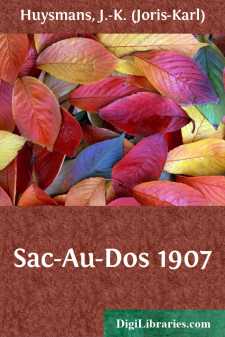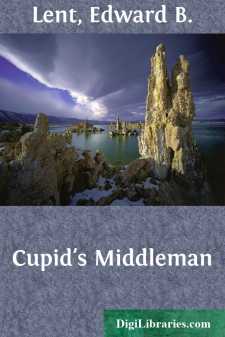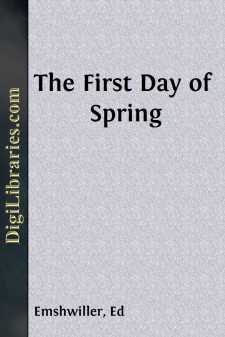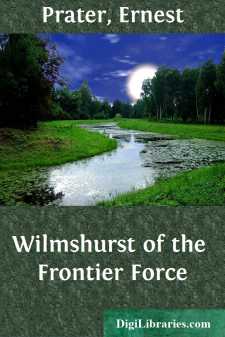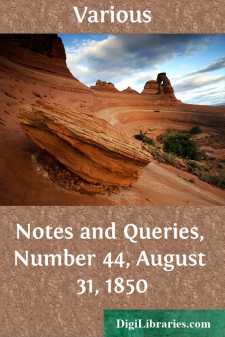Categories
- Antiques & Collectibles 13
- Architecture 36
- Art 48
- Bibles 22
- Biography & Autobiography 813
- Body, Mind & Spirit 142
- Business & Economics 28
- Children's Books 17
- Children's Fiction 14
- Computers 4
- Cooking 94
- Crafts & Hobbies 4
- Drama 346
- Education 46
- Family & Relationships 57
- Fiction 11829
- Games 19
- Gardening 17
- Health & Fitness 34
- History 1377
- House & Home 1
- Humor 147
- Juvenile Fiction 1873
- Juvenile Nonfiction 202
- Language Arts & Disciplines 88
- Law 16
- Literary Collections 686
- Literary Criticism 179
- Mathematics 13
- Medical 41
- Music 40
- Nature 179
- Non-Classifiable 1768
- Performing Arts 7
- Periodicals 1453
- Philosophy 64
- Photography 2
- Poetry 896
- Political Science 203
- Psychology 42
- Reference 154
- Religion 513
- Science 126
- Self-Help 84
- Social Science 81
- Sports & Recreation 34
- Study Aids 3
- Technology & Engineering 59
- Transportation 23
- Travel 463
- True Crime 29
Sort by:
As soon as I had finished my studies my parents deemed it useful to my career to cause me to appear before a table covered with green cloth and surmounted by the living busts of some old gentlemen who interested themselves in knowing whether I had learned enough of the dead languages to entitle me to the degree of Bachelor. The test was satisfactory. A dinner to which all my relations, far and near,...
more...
by:
Henry Drummond
ETERNAL LIFE. "This is Life Eternal—that they might know Thee, the True God, and Jesus Christ whom Thou has sent."—Jesus Christ. "Perfect correspondence would be perfect life. Were there no changes in the environment but such as the organism had adapted changes to meet, and were it never to fail in the efficiency with which it met them, there would be eternal existence and eternal...
more...
by:
Sinclair Lewis
CHAPTER I MR. AND MRS. SETH APPLEBY were almost old. They called each other “Father” and “Mother.” But frequently they were guilty of holding hands, or of cuddling together in corners, and Father was a person of stubborn youthfulness. For something over forty years Mother had been trying to make him stop smoking, yet every time her back was turned he would sneak out his amber cigarette-holder...
more...
by:
Edward B. Lent
CHAPTER I "Jim, it's years since you asked me to help you out in a love affair," I said. "Has your old heart grown cold, shriveled up, or what's the matter?" "You're right, Ben; it must be a long time back. But why don't you put out a few letters for yourself?" "I wish I could get a dollar a ton for all I have written for you," said I; "then...
more...
by:
Ed Emshwiller
The First Day of spring, the man at the weather tower had said, and certainly it felt like spring, with the cool breeze blowing lightly about her and a faint new clover smell borne in from the east. Spring—that meant they would make the days longer now, and the nights shorter, and they would warm the whole world until it was summer again. Trina laughed aloud at the thought of summer, with its picnics...
more...
by:
John Dryden
SCENE.—London. ACT I. SCENE I.—FAILER entering to BURR, who is putting on his buff-coat. Fail. What! not ready yet, man? Burr. You do not consider my voyage from Holland last night. Fail. Pish, a mere ferry; get up, get up: My cousin's maids will come and blanket thee anon; art thou not ashamed to lie a-bed so long? Burr. I may be more ashamed to rise; and so you'll say, dear heart, if...
more...
CHAPTER I. "The morning had shot her bright streamers on high, O'er Canada, opening all pale to the sky, Still dazzling and white was the robe that she wore, Except where the ocean wave lashed on the shore" Jacobite Song There lies, between the Rice Lake and the Ontario, a deep and fertile valley, surrounded by lofty wood-crowned hills, clothed chiefly with groves of oak...
more...
The last roses of the year 1811 were in bloom in the Richmond gardens and their petals would soon be scattered broadcast by the winds which had already stripped the trees and left them standing naked against the cold sky. Cold indeed, it looked, through the small, smoky window, to the eyes of the young and beautiful woman who lay dying of hectic fever in a dark, musty room back of the shop of Mrs....
more...
by:
Ernest Prater
CHAPTER I ON ACTIVE SERVICE "Four o'clock mornin', sah; bugle him go for revally." Dudley Wilmshurst, Second Lieutenant of the Nth West African Regiment, threw off the light coverings, pulled aside the mosquito curtains, and sat upon the edge of his cot, hardly able to realise that Tari Barl, his Haussa servant, had announced the momentous news. Doubtful whether his senses were not...
more...
by:
Various
NOTES GRAVESEND BOATS. While so much has been said of coaches, in the early numbers of "Notes and Queries" and elsewhere, very little notice has been taken of another mode of conveyance which has now become very important. I think it may amuse some of your readers to compare a modern Gravesend boat and passage with the account given by Daniel Defoe, in the year 1724: and as it is contained in...
more...


